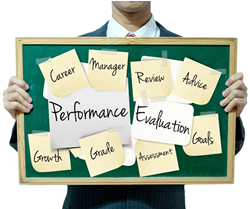Whether you conduct traditional annual performance reviews or are a disciple of performance management, John Eades has advice for you.
 The thinking and policies regarding performance reviews have experienced a shift within organisations.
The thinking and policies regarding performance reviews have experienced a shift within organisations.
HR researcher, Josh Bersin estimated as many as 70 per cent of multinational companies are moving away from the outdated annual review approach to performance management.
In the past five years, corporations including GE, Adobe, Microsoft, and Dell have axed annual performance reviews.
Eliminating these practices means leadership in the workplace can take priority over management.
The problem is that 30-to-40 per cent of organisations still utilise annual performance reviews and most employees hate them.
Conversely, the vast number of organisations that do not rely on performance reviews are burdened with managers struggling to give constructive feedback.
The most successful leaders give constructive feedback to their employees on a daily basis.
This method is successful because these leaders do two things well.
They document the positive and deficient behaviour of team members.
They provide feedback in as close to real-time as possible
On the Follow My Lead podcast, I asked Chief Executive of Ohos, Dave Needham why many managers struggle to do these two things.
His response was: “What managers struggle with is the amount of time it takes to document things that create effective feedback conversation or even a performance review.”
He is right. It is common today for managers to have 10 or more direct reports, some only communicating via email.
The amount of one-on-one time managers receive today is much different than in years past.
This is not an excuse, however.
With the ban on performance reviews must come an environment in which managers can deliver feedback on not only the results but the behaviour and habits of their team.
While formal performance reviews are becoming old-fashioned, this does not mean they have to be ineffective.
In fact, with remote teams, a quarterly review is often a good option.
Classical Conversations, a leading home-school education company, has a primarily remote workforce, and because of this, it finds the quarterly employee review to be extremely effective.
If performance reviews produce great results for your organisation, ensure you do these three things.
Get data from more than just yourself:
It is impossible for one person to have eyes on everything.
You will always find that people are excellent at straightening up in their chair and putting their best foot forward when the boss comes around.
This gives even more of a reason to plug into those who interact with the team on a regular basis.
Data from co-workers or team members can frequently provide the most insight into the positive and negative behaviour of an individual.
Relay data on an ongoing basis:
An alternative to sharing performance data once a quarter or once a year is finding a way to share live data on an ongoing basis.
This provides people with a means to be informed on how they are doing across results, behaviour, teamwork, positivity, or work ethic.
Basketball games have scoreboards for a reason — no one wants to guess who won the game when the final buzzer goes.
You do not have to have an elaborate system. It could be as simple as a spreadsheet.
Be a great coach:
One of the most important actions any manager can take is being a great coach to their people.
Fighting the urge to tell people what or how to do something will help strengthen their skills and ability to perform.
Choose to coerce their ideas out.
Great coaches live out the saying: “Education of the mind without education of the heart isn’t education at all.”
Get inside the heart of your team members and drive their best self out by building upon their strengths and improving deficient behaviour.
Whether you are in an organisation that continues to have quarterly or annual performance reviews or not, employ these lessons to improve the performance of your team members.
*John Eades is the Chief Executive of LearnLoft and author of, F.M.L. Standing Out and Being a Leader. He also hosts the Follow My Lead Podcast. Hand can be followed on instagram @johngeades.
This article first appeared on John’s LearnLoft blog.










